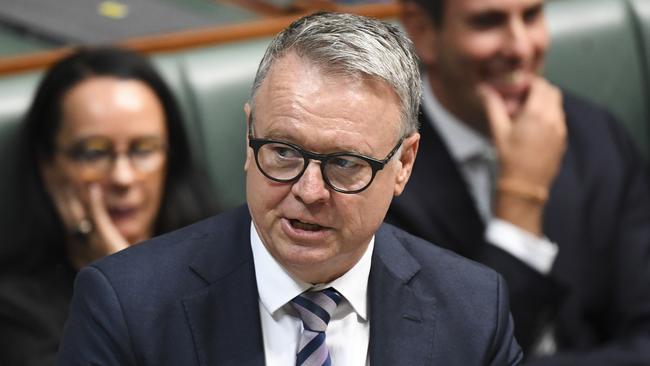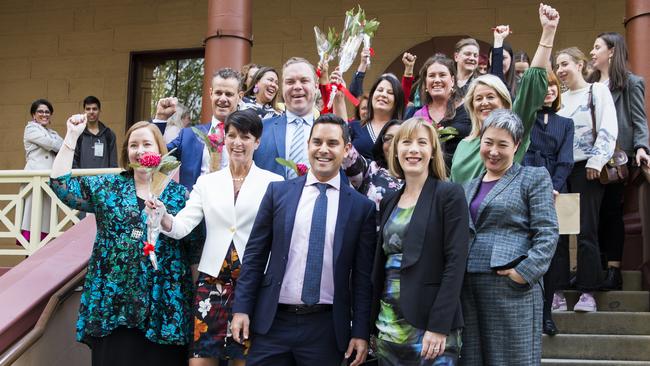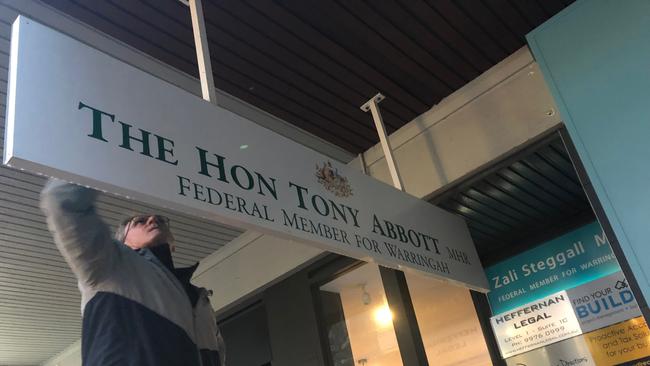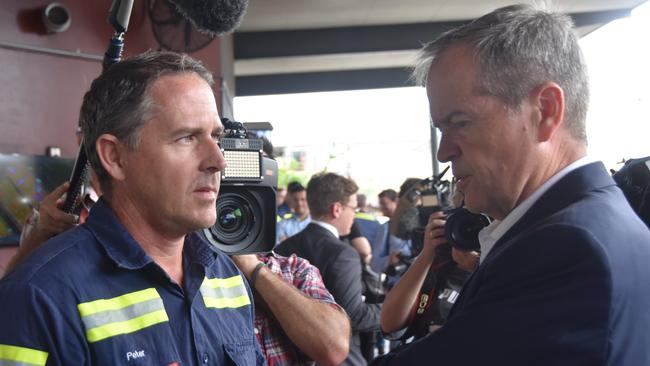Joel Fitzgibbon’s Labor split warning is part of a bigger tribal realignment of politics
Joel Fitzgibbon suggests that the ALP might split, but that’s only part of what’s happening: As politicians fight for relevance, the key to votes is no longer party, but tribe.
Opinion
Don't miss out on the headlines from Opinion. Followed categories will be added to My News.
- MPs shut down Fitzgibbon’s warning of Labor split
- The world’s opening up so why are we trapped in COVID iso?
Joel Fitzgibbon has said out loud what a lot of us have suspected for years: The ALP is trapped in an unhappy marriage with itself, and it only stays together because no one can face the prospect of splitting up the House.
Fitzgibbon’s warning of a split between the party’s traditional suburban working class and its urban, progressive, postmodern membership is more than just a factional shot across the bow of Anthony Albanese.

It’s also a further data point illustrating how the great political realignment which started with Brexit and Trump is finally – perhaps accelerated by COVID-19 – crashing on our shores.
We saw this in the US, where Donald Trump took over a Republican party that had been hollowed out by the hedge fund ideology of Mitt Romney and the endless wars inaugurated by George W. Bush.
We saw it in Britain, where pretty much all of the UK ganged up on posh, globalist London to force an exit from the EU.
And we are, finally, starting to see it here.
Various thinkers have tried to come up with a pithy catchphrase about these new battles being contests between “populists” and “elites” (speaks for itself) or “anywheres” (with their posh global lifestyles) and “somewheres” (with their dowdy attachments to their home communities).
Perhaps but, without sounding like an undergraduate Marxist, it’s actually really all about class.
Or, more specifically, tribe – which may better capture the idea of a set of shared attitudes without, necessarily, the similar bank balances.
In Australia, roughly speaking, well-off inner city Greens and leftish “moderate” Liberals will be similarly (if not to the same degree) focused on post-material concerns like climate change and the alphabet soup of gender identity politics.
Their party loyalties might be different but they are, broadly speaking, part of a similar tribe.

Sex, and more specifically, the sexual revolution, is a chief concern of both groups, whether it be legalising gay marriage or liberalising abortion laws.
Recall Greens MP Jenny Leong celebrating with Coalition government ministers after a highly contentious law to allow terminations for any reason was pushed through NSW’s parliament in 2019.
Members of this tribe are also likely to speak the language of HR departments (if they are not well-compensated Chief Diversity Officers themselves) and cheer on each others’ efforts towards advancing fashionable social justice causes at their workplaces via LinkedIn posts.
It was, after all, the woke and wealthy lower north shore that saw the long-serving conservative Tony Abbott ousted from Warringah – and a local KPMG partner go after two Liberal volunteers with a corkscrew the night before the vote.

All these attitudes get right up the noses of traditionalists on both sides of the aisle, be they Labor’s working class base, which John Howard masterfully began to carve away from the ALP during his government, or more socially conservative (often migrant) members of the traditional right.
Together, they make up the opposing tribe, broadly speaking: pro-family, patriotic but not in an alt-right sense and of the firm belief that all the solar subsidies and sex education in the world won’t do a thing to make their jobs more secure or help their kids buy a house.
Without rehashing every detail of the 2019 election, it was Bill Shorten’s failure to speak convincingly to this group that ultimately saw him lose what most bookies thought was an unlosable election.

His inability to cost his climate policies under heavy questioning from journalist Jonathan Lea did him no favours, nor did his terse exchange with a high-earning tradie in Gladstone hoping for a tax cut.
He also refused to rule out reintroducing some new version of the Safe Schools program, which led to Labor losing votes with conservative Chinese-Australian and other ethnic and religious voters worried the state would undermine their efforts to pass their values to their children.
In short, he couldn’t bridge the tribal divide.
Which is what successful politicians will have to do now.
Post-pandemic, the political spectrum will not look anything like what it does today – at least not if our politicians want to remain relevant.
The same goes for too many of our commentators, who assume that everyone on the left must remain a pro-Safe Schools libertine or betray her cause, and that everyone on the right is bound forever to a sort of comic book conservatism of c-suites and scripture classes.
Fitzgibbon was right to raise the issue but, as the country continues to fracture over coronavirus and border closures and so much else, it would be foolish to think that’s the end of it.

